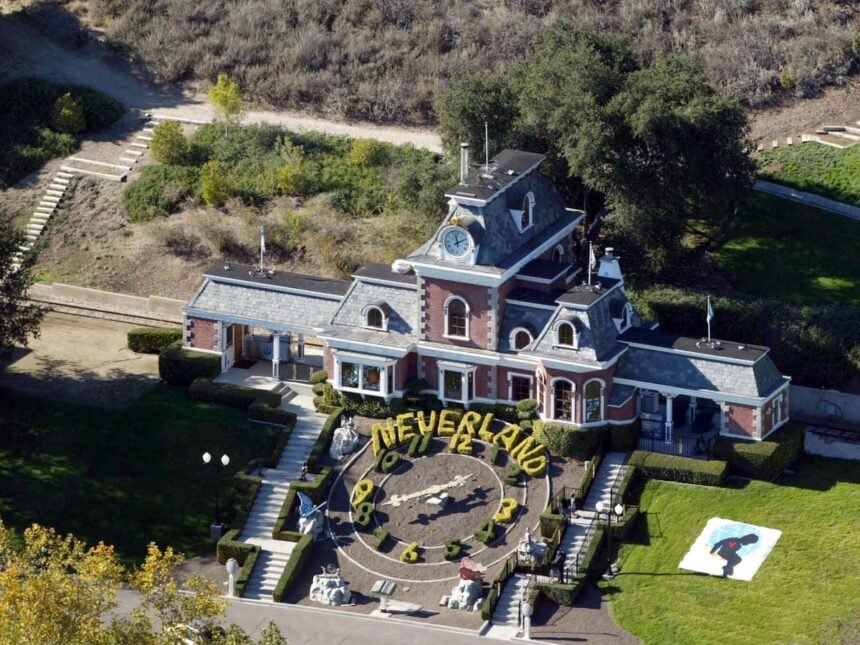
The latest headlines from our reporters across the US sent straight to your inbox each weekday
Your briefing on the latest headlines from across the US
They drove in a golf cart through the California night past brightly-lit amusement park rides, two of the most famous people on the planet surveying a 2,700-acre ranch named for a child’s fantasy and designed by a King – of Pop.
Michael Jackson was showcasing Neverland to Oprah Winfrey after acquiescing to an historic live interview in 1993; the pair left the cart during the televised event and entered the ranch’s theater, featuring a candy counter, a stage, statues of Pinnochio and ET … and juvenile hospital beds built into the walls.
“We have children that come who are intravenously [medicated]; they’re very sick, and they’re bed-ridden,” Jackson told Oprah, during what was then the most-watching interview in television history. “They can’t sit up. And these beds … they’re able to watch. We have a magic show, we show the current films, cartoons – anything so they can escape to that world of magic that they don’t get a chance to experience. The world that I was deprived of.”
Neverland had already been etching a notch in the pop-culture consciousness since Jackson’s purchase of the California ranch five years earlier. The Oprah interview, however, then beamed the eccentric wonderland directly into the living rooms of 90 million viewers around the world, further cementing its place in the larger-than-life Jackson lore and legacy.
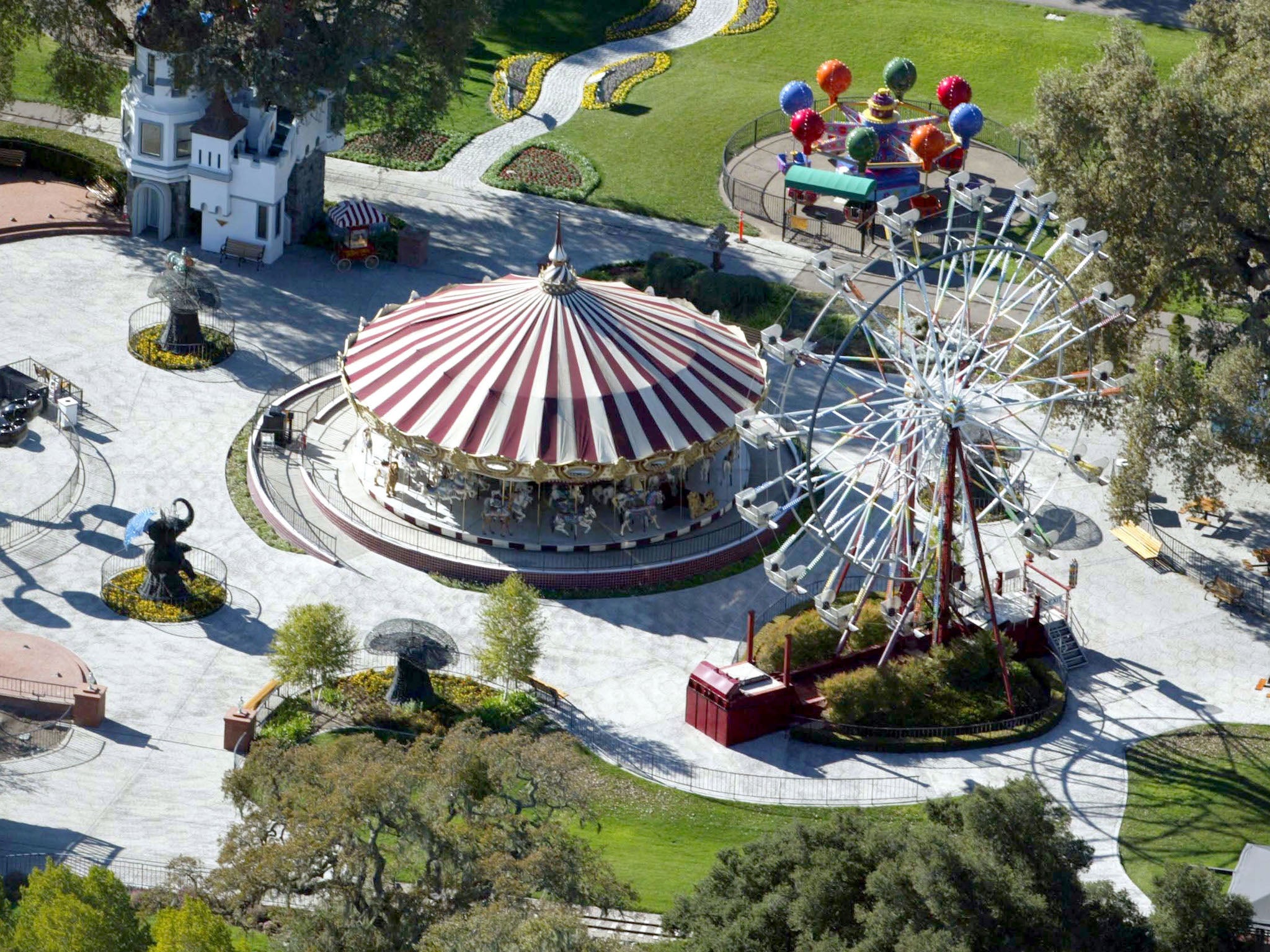
As time wore on, Neverland would become inextricably linked to both the highs and lows of the popstar’s life – emerging, in some sense, as a character itself in the larger Jackson story. After the singer’s death 15 years ago at the age of 50, the ranch’s luster began to fade as its future hung in uncertainty – just as the world grappled with posthumous allegations and the legacy of MJ himself.
Recently, however, there has again been activity at Neverland, restorations and buzz livening the property amidst the filming of an upcoming, Jackson family-backed biopic. Starring the singer’s nephew, Jaafar Jackson, Michael is being directed by Antoine Fuqua and is due for release in 2025.
And Neverland, given not only its role as a filming location but also its centrality to Jackson’s life, is certain to feature prominently in the highly-anticipated production.
Jackson first encountered the property near the height of his fame, when he collaborated with Paul McCartney for Say Say Say and shot the video together in California in the fall of 1983. Jackson’s sister, La Toya, was also involved in the shoot and recalled how McCartney was staying on the grounds of a place called Sycamore Valley Ranch outside of Los Angeles.
“We met at the small house to discuss the video,” she wrote in her 2011 memoir Starting Over. “The entire time, Michael was enthralled by the wild landscape around us.
“‘I’m going to own this property one day,’ Michael whispered to me,” she wrote – prompting her to counter: “You actually want this, Mike? It’s so unkempt.”
“You’ll see,” he told her.
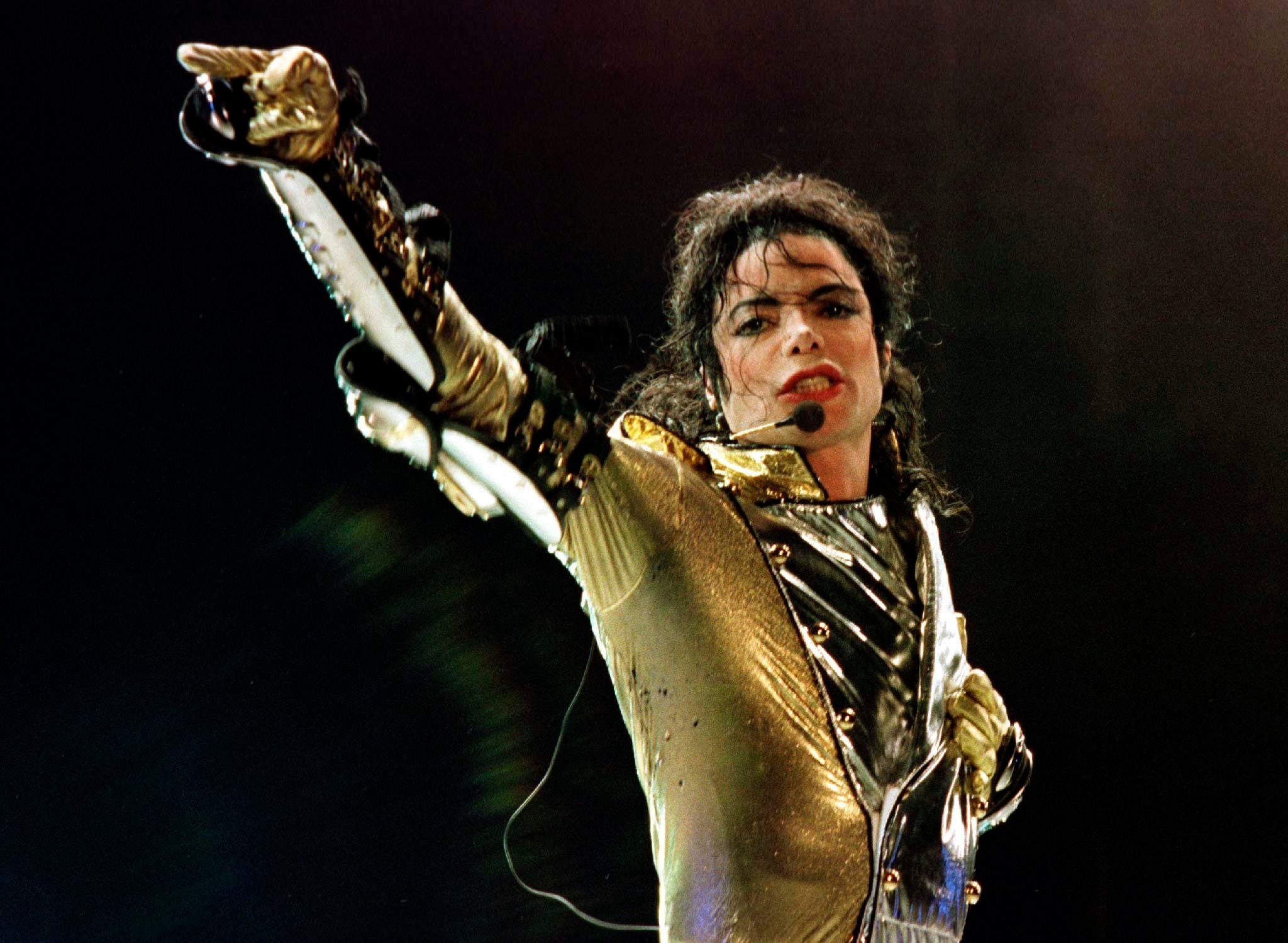
“I didn’t say anything else because I didn’t want to hurt his feelings,” La Toya continued. “Michael always was a visionary. True to his promise, he later bought the land for $17 million and turned it into his dream home, Neverland.”
Jackson purchased Sycamore Valley Ranch in 1988 for reportedly more than the sum she cites — possibly as high as $30 million. Sycamore Valley Ranch had been developed after golf course community entrepreneur William Bone discovered and fell in love with a “stretch of cowboy country” in the late 1970s in the Santa Ynez Valley – then set about turning it into his “dream world,” Architectural Digest reported in 2009.
That included “a 13,000-square-foot main house and multiple outbuildings, spectacular gardens and a four-acre lake with a five-foot waterfall and a stone bridge,” the publication continued.
“I had a desire to express everything I had learned in 15 years of home building,” said Bone, who provided photographs for the AD piece.
The furnishings were included when Bone sold the estate to Jackson five years after the singer first encountered it, and the interiors were kept the same, according to AD.
But the eccentric modifications and additions to the rest of the property were what would first make Neverland famous; Jackson sought to engineer a playground paradise, essentially recreating a childhood he felt he’d never had.
“I remember going to the recording studio, and there was a park across the street, and I’d see all the children playing and I would cry,” Jackson told Oprah in 1993. “It would make me sad that I would have to go to work instead.”
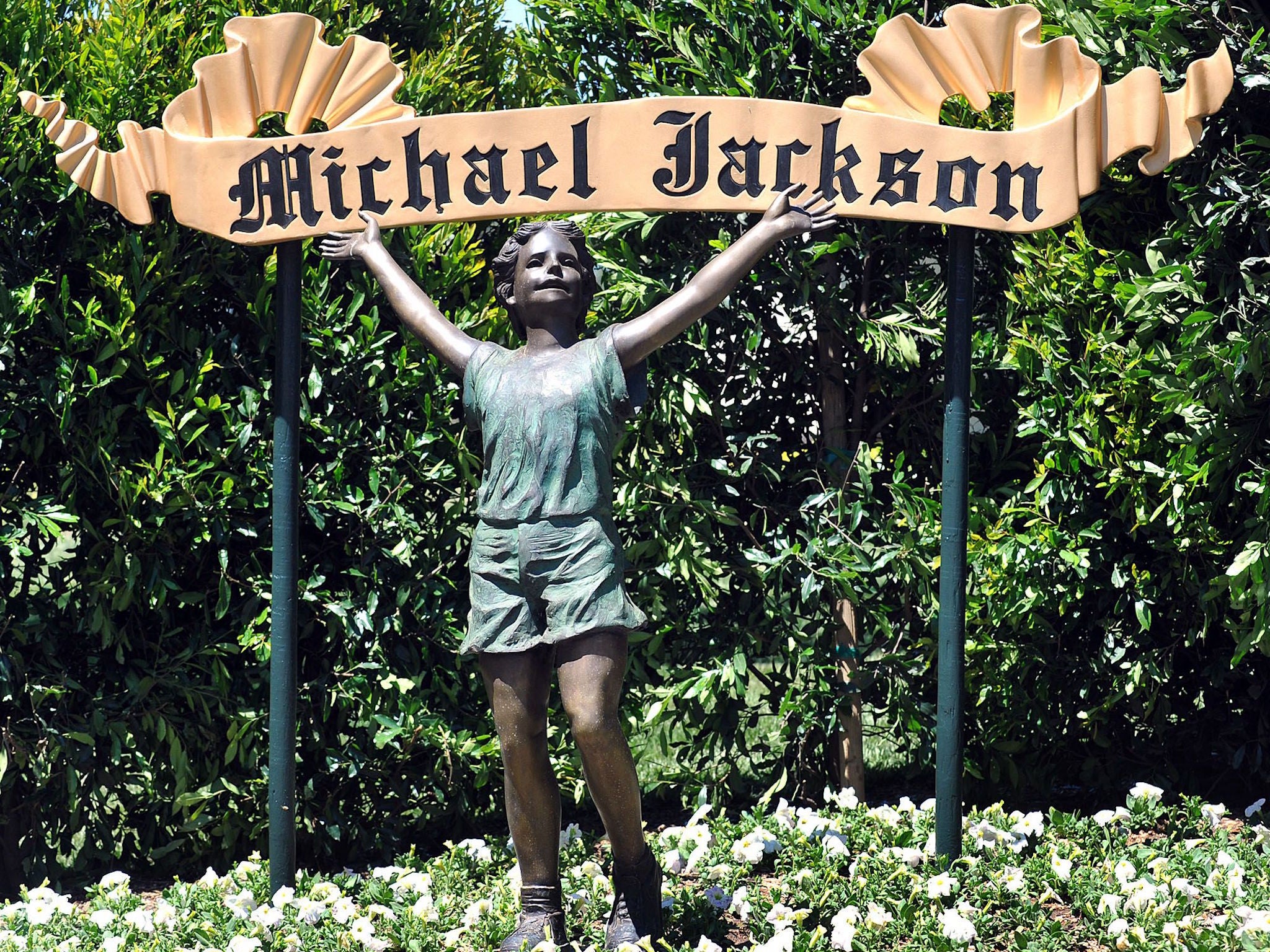
“People wonder why I always have children around. It’s because I find the thing that I never had through them. Disneyland, amusement parks, arcade games—I adore all that stuff because when I was little, it was always work, work, work.”
Jackson installed it all at Neverland, which came to include a “ride arsenal that, at the time, would have been the envy of several smaller park operators,” wrote Park World, interviewing some of Jackson’s righthand project assistants. “He also had a zoo, petting zoo, reptile barn and alligator pond to entertain guests.”
“Phase 1 of Michael’s amusement park project commenced in June 1990 when the site for the new park was ‘bare dirt’ and we worked closely together to June 1993 developing this long-time dream,” Rob Swinson, Jackson’s “personal ride consultant” who worked at a Kansas-based amusements supplier, told Park World.
Jackson bought 18 rides between 1990 and 1997, according to the publication; his favorite was “the Chance ‘Zipper’ because it was wild,” Lance Brown, Jackson’s ranch manager from 1989 through to 1993, told Park World.
“Michael liked spinning at the top up to three times if he hit it just right. Michael’s most popular ride with the kids was the Sea Dragon because they could ride it together. He’d put his hands up in the air with all the kids as it was coming down and back up with everyone squealing!”
In addition to the rides, guests could ride on Disney-style trains or take advantage of the six-bedroom Normandy-style manson, four-acre lake with waterfall, outdoor barbeque, pool house, guest houses, tennis court and 5,500 sq ft theater and stage.
Jackson told Oprah how, every three weeks, terminally ill children from programs such as Make-A-Wish were invited to enjoy Neverland’s offerings. He also held an annual family day for ranch employees, Brown told Park World.
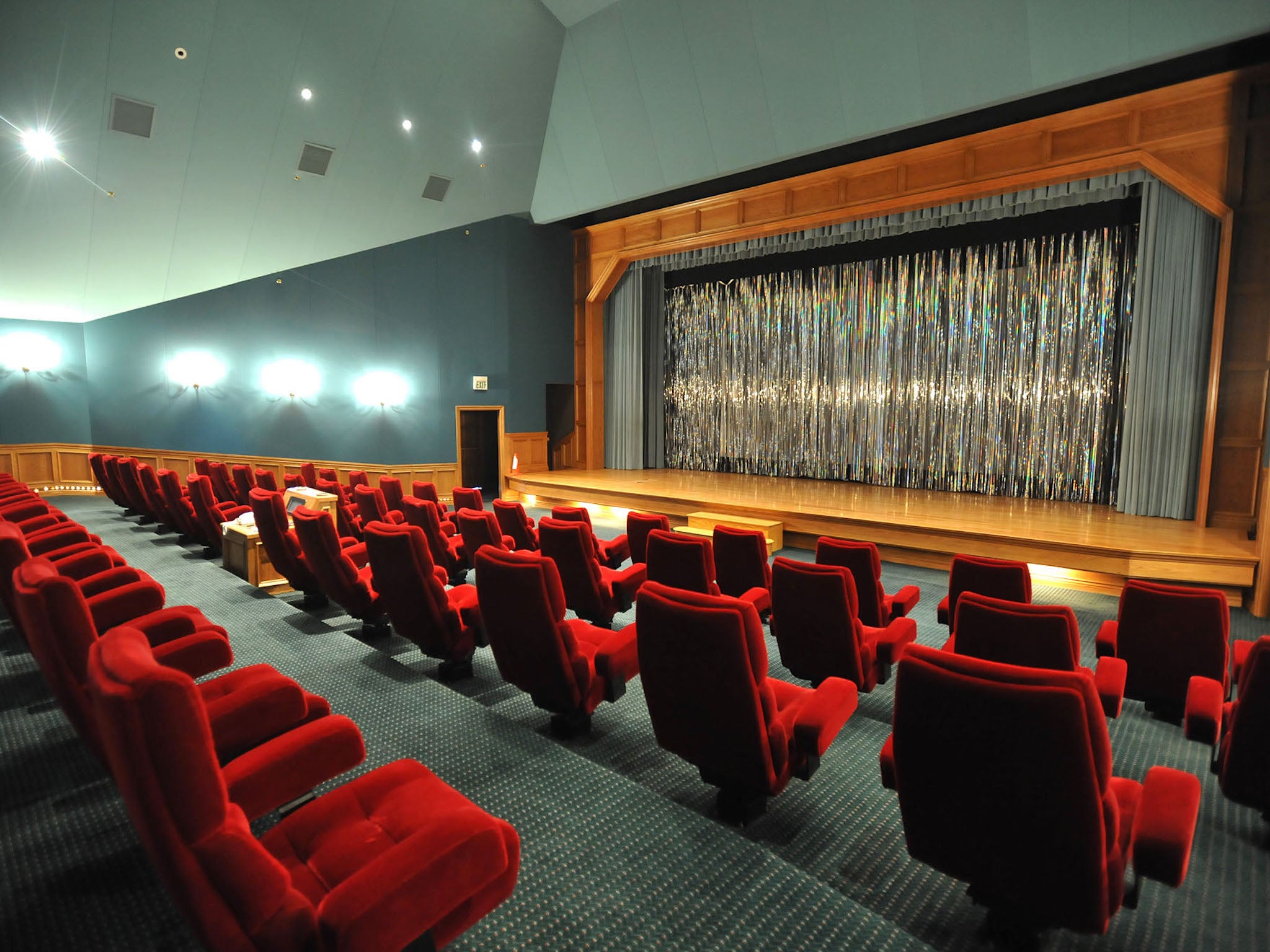
But the property was also a perfect location for more grown-up festivities; in 1991, attention centered on Neverland for the wedding of Jackson’s close friend, Elizabeth Taylor, to civilian Larry Fortensky. It was the actress’s seventh marriage (and would not last) and the media frenzy was such that one paparazzo parachuted into the festivities; Taylor sold the pictures to People for $1million, using the money to start her AIDS foundation and further advancing the pop culture fame of Neverland’s mystique.
The ranch would also be the place where Jackson chose to raise – and shelter from the public – his two sons and only daughter, the first born in 1997. Paris Jackson, his middle child, described what it was like growing up at Neverland, where she spent the first seven years of her life, in a 2017 interview with Rolling Stone.
“We couldn’t just go on the rides whenever we wanted to,” she said. “We actually had a pretty normal life. Like, we had school every single day, and we had to be good. And if we were good, every other weekend or so, we could choose whether we were gonna go to the movie theater or see the animals or whatever. But if you were on bad behavior, then you wouldn’t get to go do all those things.”
Investigations into Jackson’s own alleged behavior, however, would forever tarnish the singer’s relationship with his beloved personal wonderland – and prompt him to flee it forever.
Following a 2003 police probe into allegations of sexual misconduct by Jackson involving minors – similar accusations had been made in 1993, though no charges were brought – authorities raided Neverland that November. More than 60 officers conducted and videotaped the search; Jackson was ultimately indicted on multiple charges but acquitted after a four-month trial in 2005. Many of the alleged incidents happened at or were tied to Neverland.

Jackson subsequently never returned – living abroad with his children in Bahrain, Ireland and other locations as the ranch reportedly fell into disrepair. The singer nearly lost the property in 2008 after defaulting on the $24.5million he owed on the property, facing foreclosure – but a Los Angeles-based real estate investment company called Colony Capital purchased his loan, bailing him out that November. Part of the deal mandated that Jackson would return to touring to bring in more funds.
At the time, “even the groomed portion” of Neverland “was going to seed,” New York Magazine wrote in 2010. Jackson’s “275 employees had dwindled to four. The amusement-park rides and steam train—operable only by California’s single licensed steam-train engineer—had been sold off to raise money. The petting zoo’s animals had been removed by animal-rescue groups; the snakes from the reptile barn were, um, released into the wild.”
As Jackson prepared for the push to reinvigorate his career, Colony Capital worked to reinvigorate Neverland – but in June 2009, 18 days before Jackson’s first planned comeback concert, the singer was found dead at the home where he was living in Beverly Hills.
Fans flocked to Neverland, leaving makeshift memorials amongst tears, and the property has remained something of a King of Pop pilgrimage site. There were rumors initially of turning the ranch into a Graceland-style destination and museum, though that never materialized, and the estate went on the market in 2016 for $100m – only for that asking price to drop to $67m the following year.
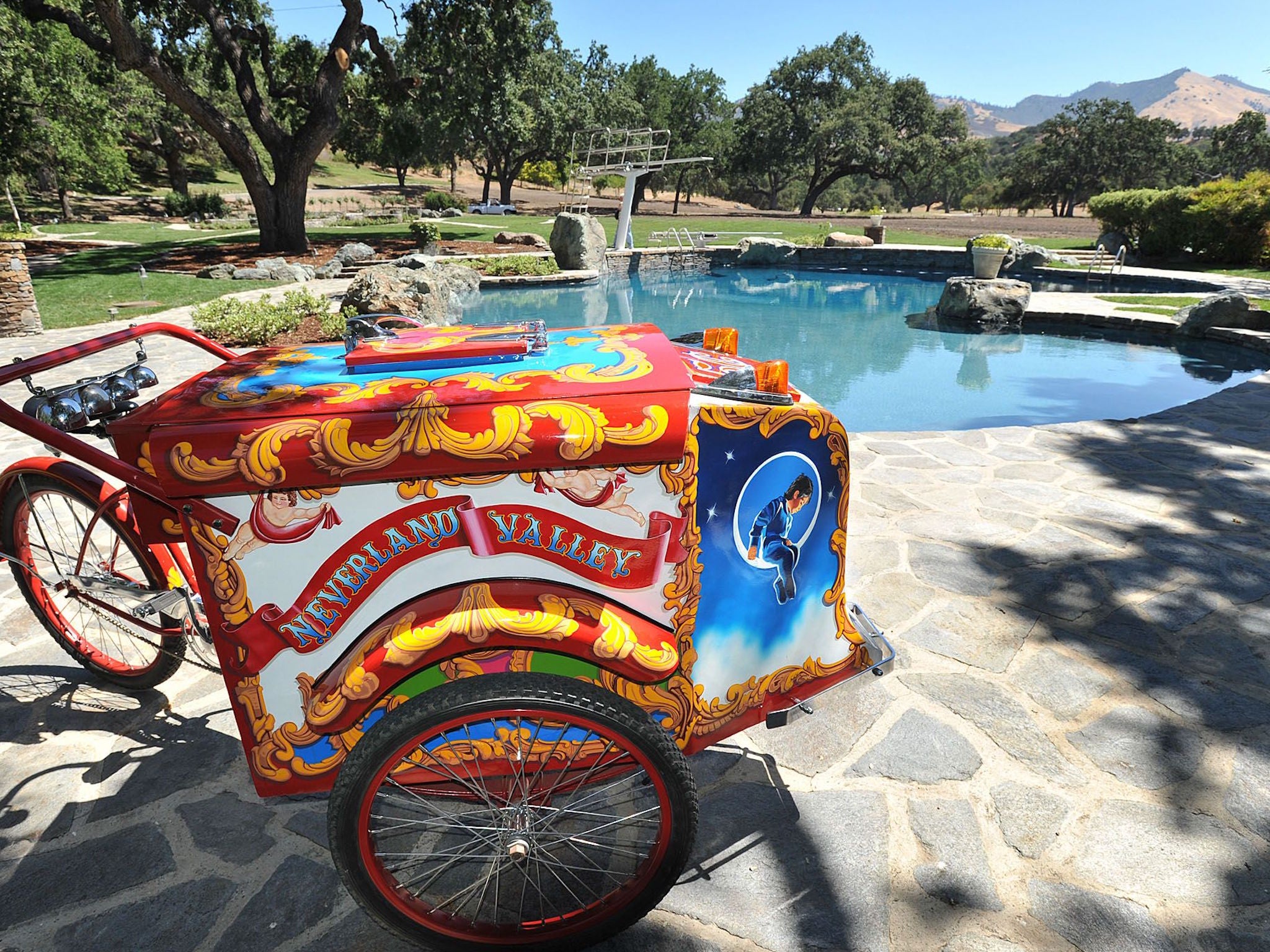
It took until 2020 – more than 11 years after Jackson’s death – for a buyer to finally commit to Neverland. Billionaire businessman Ron Burkle, an associate of the singer and controlling shareholder of SoHo House, paid $22million for the property, WSJ reported.
Since then, as buzz has increased about the biopic, so too has the activity on Neverland’s 2,700 acres.
“Our staff has been out to the site multiple times for about the last four to six months,” Errin Briggs, a supervising planner for Santa Barbara County, told SFGATE in February 2022. “We don’t yet have any permit requests for new structures, but they’ve pulled permits for roofing, existing structures, electrical — pretty minor stuff, but we can confirm work is being done.”
More recently, filming permits were obtained for the ranch and adjacent road in April through May 1 for “dialogue, petting zoo, stunt” during daylight hours, including the use of special effects and helicopters, with more than 300 personnel listed, SFGATE reported.
A first glimpse of Lionsgate’s Michael was given in April to movie theater owners at CinemaCon, when producer Graham King called the singer “an enigma full of eccentricities.”
“There are biopics, and then there is Michael,” King said.
And then there is Neverland … and the stories its walls can tell. As audiences and fans inevitably flock to the biopic next year, there will be no shortage of curiosity about Jackson, the ranch and the many goings-on that happened, as Neverland’s gates proclaimed, “once upon a time.”
✕
Subscribe to Independent Premium to bookmark this article
Want to bookmark your favourite articles and stories to read or reference later? Start your Independent Premium subscription today.
SubscribeAlready subscribed? Log in
Popular videos
{{/link}}


